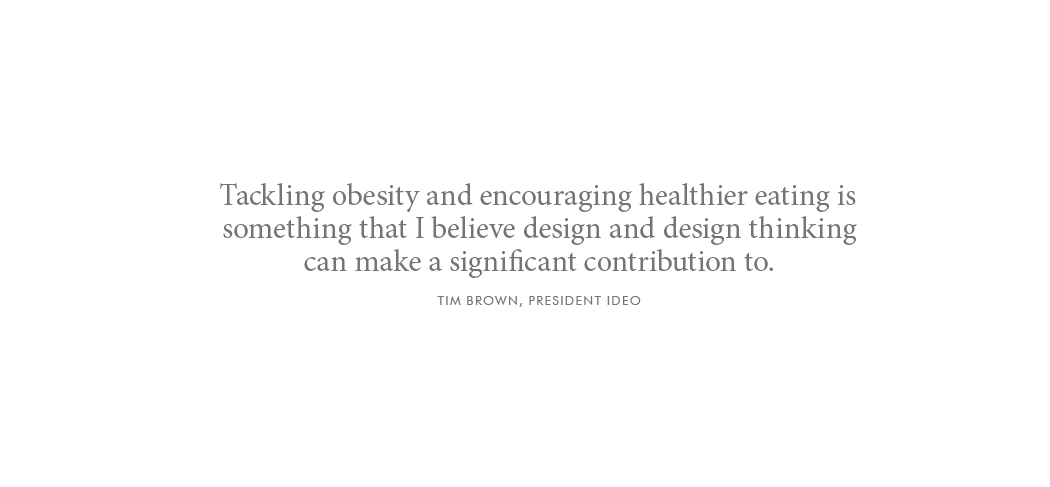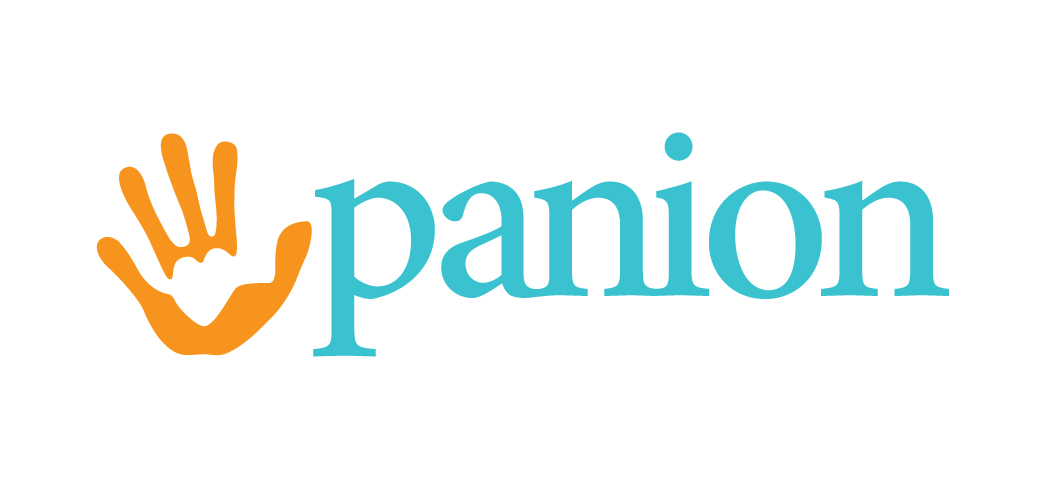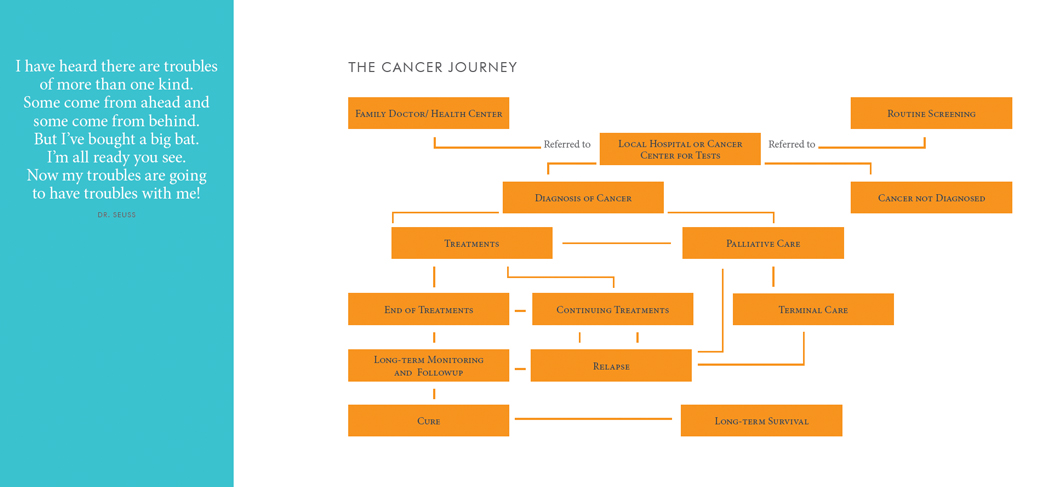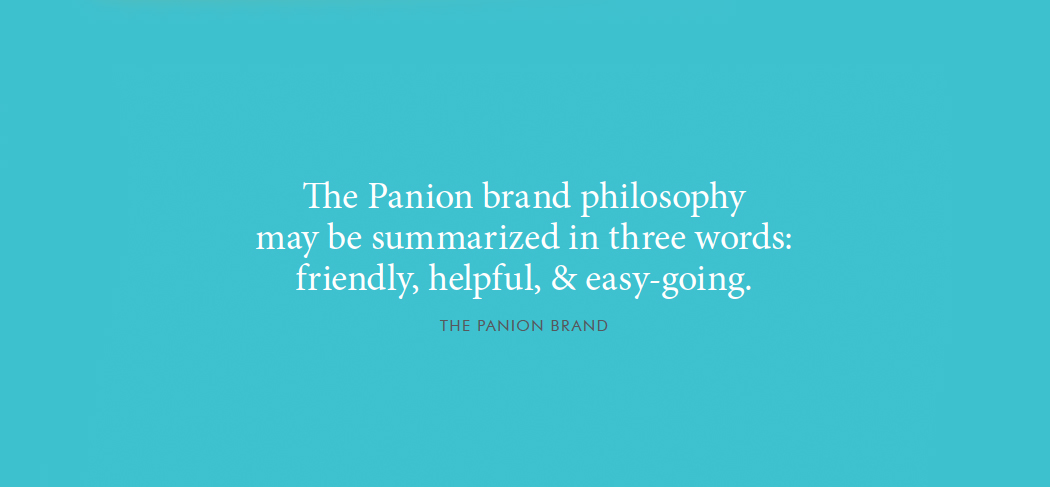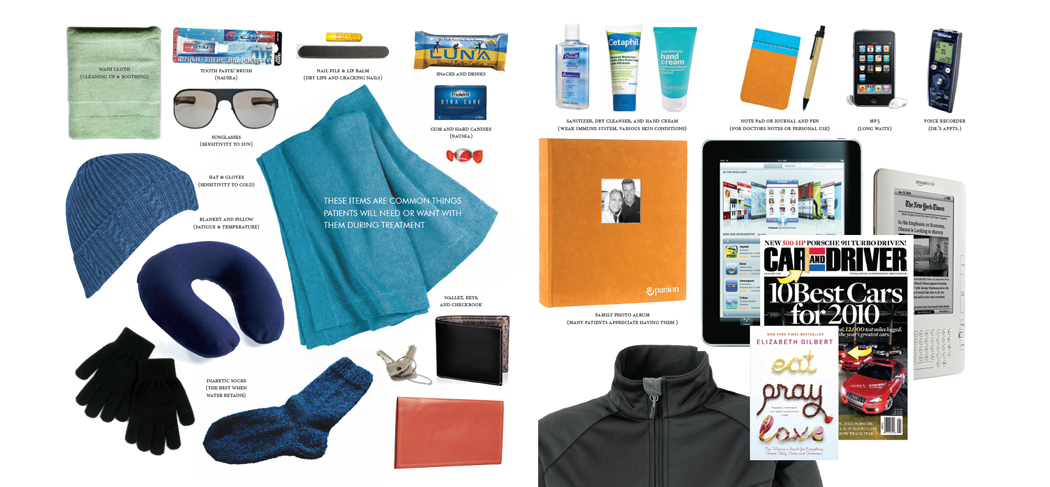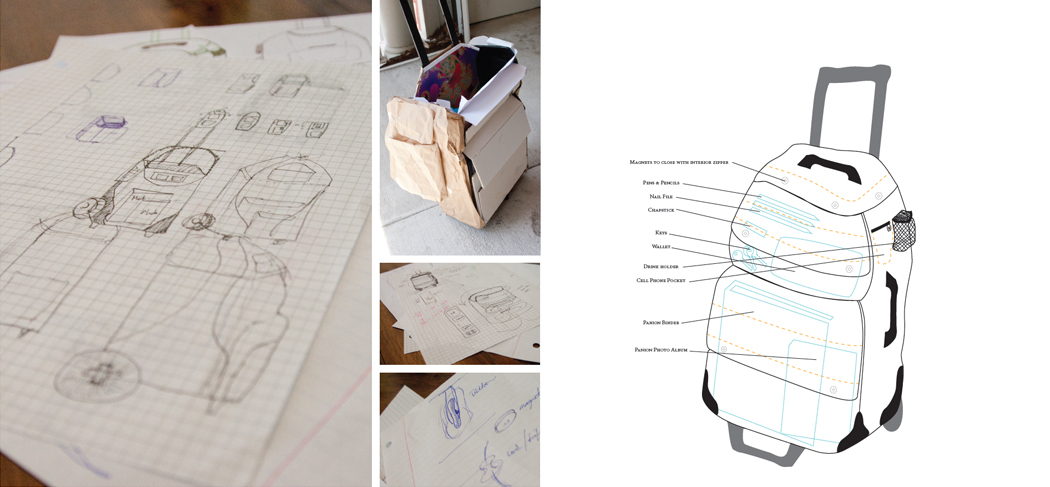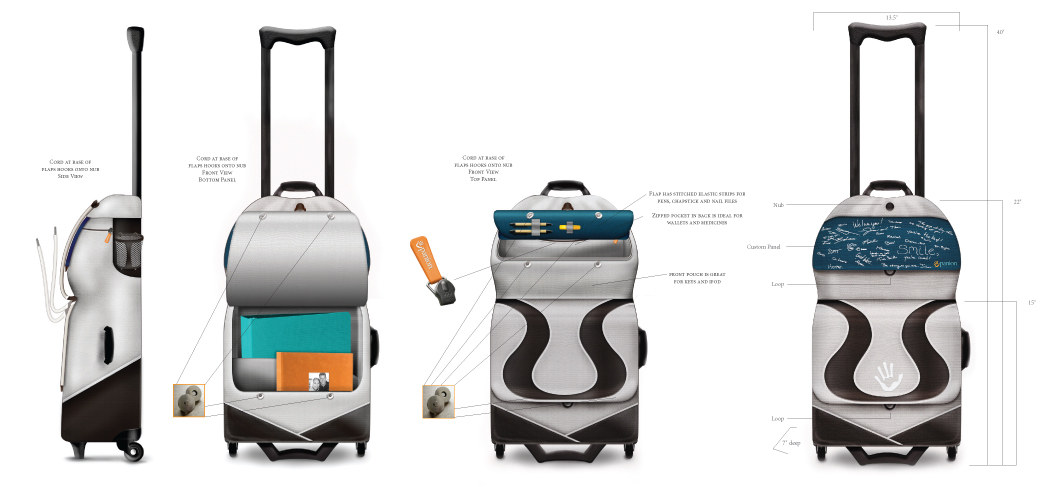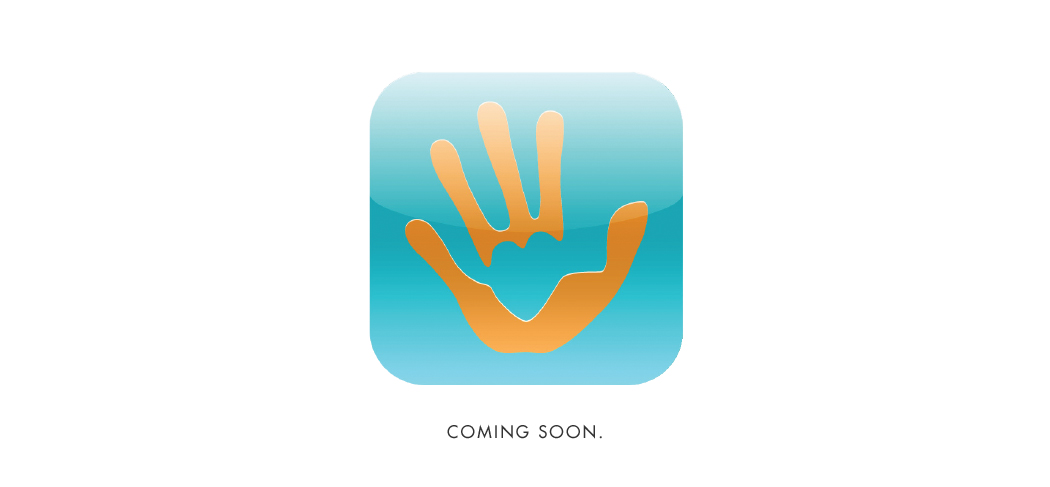Panion
Project: Personal
The problem: No one plans to hear the words, “you have cancer.” Cancer is unexpected, the effects of treatment are unpredictable, and patients and their caretakers must face the overwhelming mental, financial, and physical needs that arrive as soon as those words are spoken. For most, they may know someone who fought cancer, but they were likely not caretakers, aware of what may come and what they may need to prepare themselves. A lack of knowledge and an immensity of fear are common. Cancer patients spend a lot of time waiting, at treatment (which is generally hours long), in discomfort, and juggling things they never had to deal with before. Suddenly, their briefcases and purses are insufficient in space and function. The patients are often weak, so carrying heavy bags is cumbersome.
Caretakers often help, but even they tire with long days of waiting. When a patient is diagnosed, there are more questions than answers. Sometimes there are no answers. Feeling completely alone is common. Feeling ill prepared is even more so. Organization is pertinent during this incredibly draining time, and patients need things they may have never needed before. So, what can be done?
Proposed solution: I propose to design a cancer
care kit for patients undergoing treatment. The kit will better equip patients for the journeys ahead. I say journeys as they will face both physical journeys to treatments and everyday life travels as well as the mental roller coaster they have just embarked upon. When physical needs are met, often mental and spiritual needs are also fed. The kit might make the journey just a little more bearable, a little more comfortable physically, and a little easier knowing someone cared enough to make the kit and someone cared enough to give it to the patient. It represents how others have made this journey before, that the patient is not alone, and the patient has support. It is simple, indiscreet in appearance (so as to not draw attention to the patient as such), convertible for various objects that would be needed or wanted in the bag, and comfortable.
The kit would provide places for everything the patient may need when they go for treatment. When given to the patient, the kit would include some of these items. It would have wheels and a pull bar for ease of carrying. As the patients will likely access the bag from a seated position, the bag will be designed in a way that is easily accessed from a seated position. The aesthetic of the bag will be simple, gender-neutral, and geared towards adults. There would be additional designs for children, men, and women if the bag were to be set into production. As most patients would be trading out a workbag, purse, or brief case for this bag, the bag will have a similar everyday style. It will not look too travel oriented, too casual, or too formal. The materials will be durable but comfortable. The design items will have a softness and elegance to them. I feel more formal typography will suit the project, with healing and calming or energizing colors. The bag will be easy to open and will stand on its own when open and closed.
Roles: Research (interviews with doctors, nurses, and survivors), strategy, industrial, graphic, and UX design

